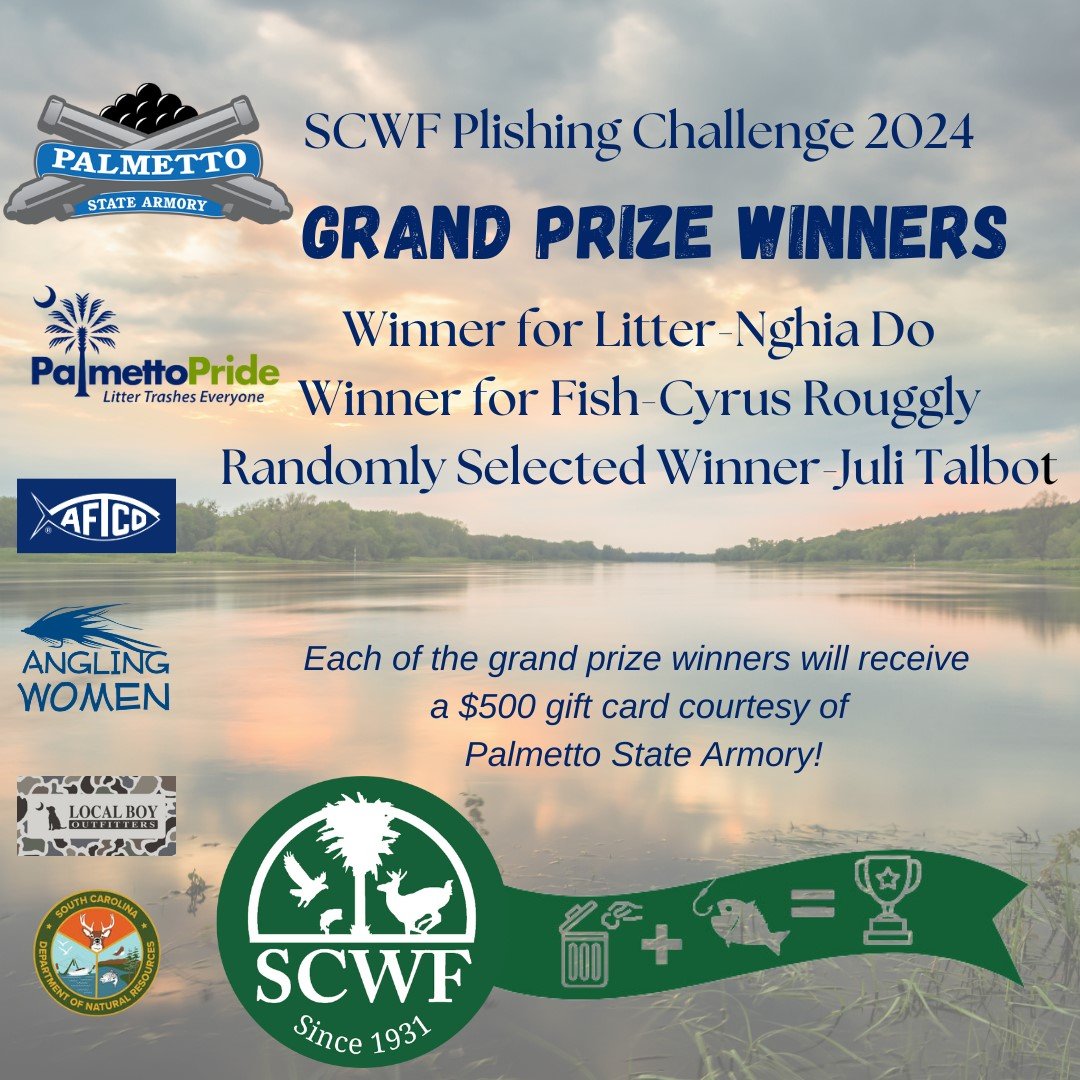
Keep South Carolina Wild
November 27, 2023
In 2019, SCWF launched Project Prothonotary, a state-wide conservation effort to install nest boxes for a beloved, yet declining bird species known as the Prothonotary Warbler. As habitat specialists, these birds seek out existing cavities in trees to build nests and raise their young. However, habitat destruction has led to less and less trees available for nesting, and that’s where nest boxes come in.
SCWF staff, volunteers, and partners have installed over 500 boxes on state, federal, and private land all throughout South Carolina over the past 4 years, and many of the boxes have been used by Prothonotary warblers. With such great success, the project was even featured in the National Wildlife Federation’s magazine.
Thanks to the sponsorship by Duke Energy’s Habitat Enhancement Program and the help of numerous partners and volunteers, SCWF installed 80 additional boxes throughout the Catawba-Wateree watershed in 2022. Volunteers enjoyed helping install the boxes and seeing first-hand the specific habitat that prothonotary warblers require.
SCWF hosted a webinar that taught all about this species, their conservation importance, and places where you can see these beautiful birds. We even had Matt Johnson, the Center Director of Audubon’s Beidler Forest discuss his incredible Prothonotary warbler research at Francis Beidler Forest. Watch the webinar here!
SCWF held a workshop where volunteers were trained in ethical nest monitoring and data collection using NestWatch. They learned how to identify nests of certain species, bird breeding biology, and best practices for monitoring bird nests. Starting in the spring, volunteers began checking the nest boxes for signs of activity. The efforts of a dedicated group of volunteers at Sun City Carolina Lakes Community were featured in the Lancaster News. Throughout the nesting season, they were excited to see almost half of the boxes being used by nesting prothonotary warblers and several other bird species such as Carolina wrens, tree swallows, and Carolina chickadees. Results were then submitted to a nationwide online database that will help scientists better understand and manage the impacts of environmental change on bird populations.
This citizen science project is a prime example that teaching people about our wildlife is a major part of what it’s going to take to help them.
— Savannah Jordan, SCWF Habitat Education Manager
We are excited to announce that 85 more boxes will be installed in 2024 to provide nesting sites for birds that will be arriving for the spring 2025 nesting season. Learn more here.
To volunteer with this project, sign up here or contact Savannah Jordan.
Sponsors: Duke Energy, SC State Credit Union
Heyward Center and Technology Center
Box hosts: Sun City Carolina Lakes, Comporium, Landsford Canal State Park, Andrew Jackson State Park
Partners: SC Department of Natural Resources, SC State Parks, Katawba Valley Land Trust, Audubon SC


Congratulations to everyone who participated in the 2024 SCWF Plishing Challenge! Everyone who entered something into the challenge, either litter they collected from their local waterways or a fish they caught,...

Published in Columbia Star - December 22, 2022 By Mike Cox [caption id="attachment_5372" align="alignright" width="300"] Don Myers participates in SCWF’s annual “Plishing” event.[/caption] On October 28, 1931, a group of...

This year marks the 50th anniversary of the Endangered Species Act! Join us as we highlight species throughout the year that have benefited from this landmark legislation. Have you ever...